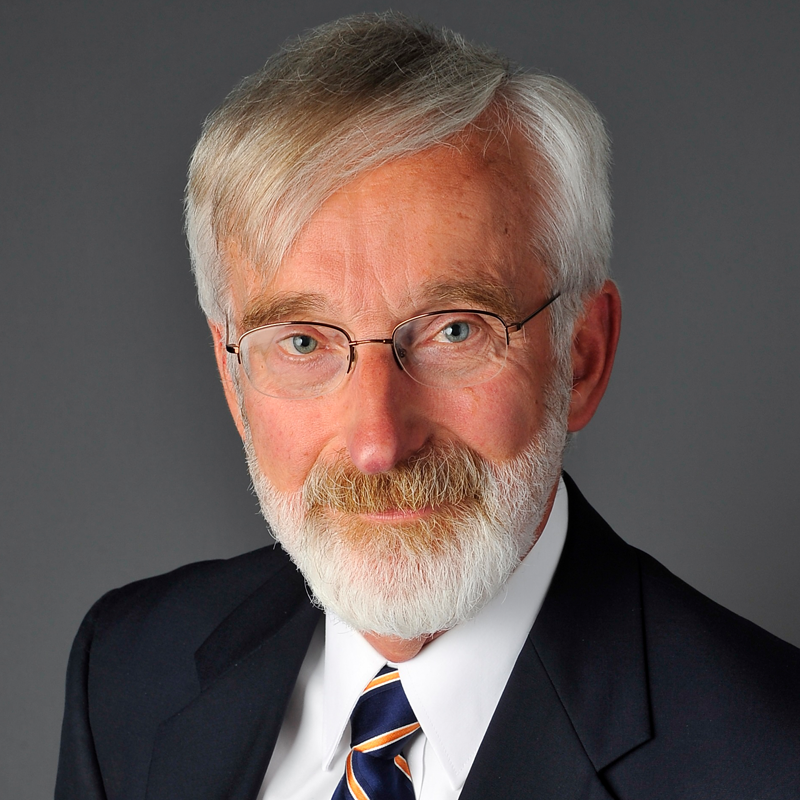
Alex Hills
Distinguished Service Professor, Engineering and Public Policy
Bio
- Carnegie Mellon 1992-
Dr. Alex Hills and his team built the world’s first big Wi-Fi network. As described in his book, Wi-Fi and the Bad Boys of Radio , the team overcame major obstacles to create the first wireless campus. It was an unheard of idea when Hills started the project in 1993. The new network, which came to be called “Wireless Andrew,” was the prototype used by many others to build Wi-Fi networks now in use around the world.
Before he joined Carnegie Mellon, Professor Hills spent several years living in remote areas of Alaska and working to provide modern broadcasting and telecommunications services to the many small villages spread across the big state. He fought Alaska’s difficult weather and terrain, and helped to persuade some reluctant executives, in order to make the services possible. He tells of these adventures in his new book, Finding Alaska’s Villages: And Connecting Them.
Dr. Hills is actively involved in international development. As a senior advisor to the "Technology Consulting in the Global Community" program, he works with Carnegie Mellon students on a broad array of projects in developing nations. This work is described in his book Geeks on a Mission. It was the subject of his keynote speech at the 2015 Information Networking Institute graduation ceremony.
Professor Hills has served as Vice Provost and Chief Information Officer at Carnegie Mellon, founding director of the university's Information Networking Institute, Alaska's Deputy Commissioner of Administration and chief telecommunications official, and a US Army officer and company commander in South Korea.
Education
- Ph.D. 1979, Carnegie Mellon University
- M.S. 1969, Arizona State University
- B.S. 1964, Rensselaer Polytechnic Institute
Research
Dr. Hills has written and lectured on the potential for wireless to deliver basic telephone service in the developing world and on its implications for anytime-anywhere computing. He has broad experience in information technology, including both technical and business aspects. And he is an expert in telecommunications policy, which encompasses aspects of engineering, law and economics
Working with colleagues, Professor Hills also developed a methodology for designing Wi-Fi networks. He invented a semi-automated design tool called “Rollabout” to dramatically improve and speed up the Wi-Fi network design process. He holds 18 patents and has helped industry partners to improve the performance of their Wi-Fi equipment and networks.
He now works on the use of low-Earth orbiting (LEO) satellites to deliver broadband services to rural and remote parts of the world, and the new LEO constellations come with some problems. Among them are the light pollution caused by sunlight reflected by the satellites, which is a concern to astronomers using optical telescopes, and the space debris, or “space junk,” that can lead to collisions among the new satellites and other objects orbiting in space. But Dr. Hills is working to solve two other problems – the radio interference LEO satellites can cause to the older, more traditional geosynchronous Earth-orbiting (GEO) satellites and the interference that LEO satellites can cause to each other. Both problems exist because LEO satellite constellations must share the radio spectrum with GEO satellites and with each other.
Publications
-
Hills A., J. M. Peha, J. Munk, and S. Pogorelc, "Controlling Antenna Sidelobe Radiation to Mitigate Ku-Band LEO-to-GEO Interference," IEEE Access, vol. 11, pp. 71154-71163, July 2023
-
Hills A., J. M. Peha and J. Munk, "Feasibility of Using Beam Steering to Mitigate Ku-Band LEO-to-GEO Interference," IEEE Access, vol. 10, pp. 74023-74032, July 2022
- Hills, A., “Finding Alaska’s Villages: And Connecting Them,” Dog Ear Publishing, Indianapolis, 2016.
- Hills, A., Editor, "Geeks on a Mission", Dog Ear Publishing, Indianapolis, 2013.
- Hills, A., "Wi-Fi and the Bad Boys of Radio", Dog Ear Publishing, 2011.
- Hills, A. et al, "Crossing the Chasm of Establishing Wi-Fi", in The Innovation Journey of Wi-Fi, University of Cambridge Press, 2011.
- Hills, A., "Dependability on the Last Frontier", Proceedings, 38th Annual IEEE/IFIP International Conference on Dependable Systems and Networks (DSN 2008), Anchorage, Alaska, June 24-27, 2008.
- Hills, A., "Riding the Waves", in Engineering the Future: Science, Technology, and the Design Process, Key Curriculum Press, Emeryville, California, 2008, pp. 245-252.
- Hills, A., "Smart Wi-Fi", Scientific American, vol.285, no.10, pp.86-94, October 2005.
- Hills, A. and B. Friday, "Radio Resource Management in Wireless LANs", IEEE Communications, vol.42, no.12, pp.S9-S14, December 2004.
- Hills, A. and J. Schlegel, "Rollabout: A Wireless Design Tool", IEEE Communications, vol.42, no.2, pp.132-138, February 2004.
- Hills, A., J. Schlegel, and B. Jenkins, "Estimating Signal Strengths in the Design of an Indoor Wireless Network", IEEE Transactions on Wireless Communications, vol.3, no.1, pp.17-19, January 2004.
- Hills, A., "Large-Scale Wireless LAN Design", (Invited paper), IEEE Communications, vol.39, no.11, pp.98-104, November 2001.
Selected Honors and Awards
- Honorary Doctor of Humane Letters, University of Alaska, 2014
- Life Fellow, IEEE, 2008
- Alaska Engineer of the Year, 2007
- Profesor Extraordinario, Universidad Austral de Chile, Valdivia, Chile, 2005 to present
- Member, Alaska Innovators Hall of Fame